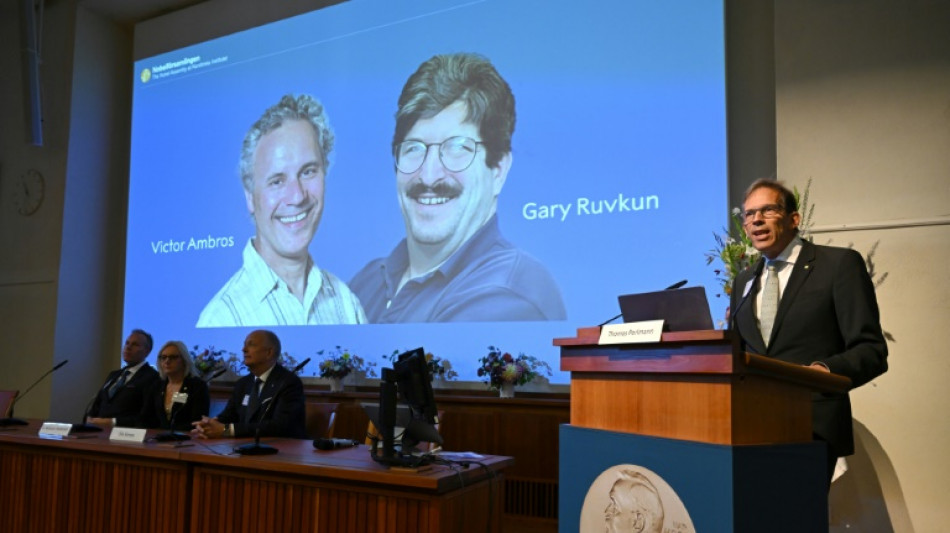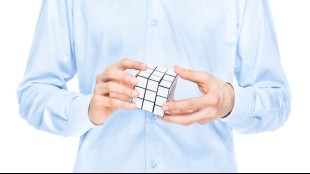
-
 Syria monitor says US strikes killed at least five IS members
Syria monitor says US strikes killed at least five IS members
-
Australia stops in silence for Bondi Beach shooting victims

-
 Olympic champion Joseph helps Perpignan to first Top 14 win despite red card
Olympic champion Joseph helps Perpignan to first Top 14 win despite red card
-
Zelensky says US mooted direct Ukraine-Russia talks on ending war

-
 Wheelchair user flies into space, a first
Wheelchair user flies into space, a first
-
Brazil's Lula, Argentina's Milei clash over Venezuela at Mercosur summit

-
 Haaland sends Man City top, Chelsea fightback frustrates Newcastle
Haaland sends Man City top, Chelsea fightback frustrates Newcastle
-
Thailand on top at SEA Games clouded by border conflict

-
 Chelsea chaos not a distraction for Maresca
Chelsea chaos not a distraction for Maresca
-
Brazil's Lula asks EU to show 'courage' and sign Mercosur trade deal

-
 Africa Cup of Nations to be held every four years after 2028 edition
Africa Cup of Nations to be held every four years after 2028 edition
-
Zelensky says US mooted direct Ukraine-Russia talks on ending war in Miami

-
 Armed conflict in Venezuela would be 'humanitarian catastrophe': Lula
Armed conflict in Venezuela would be 'humanitarian catastrophe': Lula
-
Chelsea fightback in Newcastle draw eases pressure on Maresca

-
 FIFA Best XI 'a joke' rages Flick over Raphinha snub
FIFA Best XI 'a joke' rages Flick over Raphinha snub
-
Swiss Von Allmen pips Odermatt to Val Gardena downhill

-
 Vonn claims third podium of the season at Val d'Isere
Vonn claims third podium of the season at Val d'Isere
-
India drops Shubman Gill from T20 World Cup squad

-
 Tens of thousands attend funeral of killed Bangladesh student leader
Tens of thousands attend funeral of killed Bangladesh student leader
-
England 'flat' as Crawley admits Australia a better side

-
 Australia four wickets from Ashes glory as England cling on
Australia four wickets from Ashes glory as England cling on
-
Beetles block mining of Europe's biggest rare earths deposit

-
 French culture boss accused of mass drinks spiking to humiliate women
French culture boss accused of mass drinks spiking to humiliate women
-
Burning effigy, bamboo crafts at once-a-decade Hong Kong festival

-
 Joshua knocks out Paul to win Netflix boxing bout
Joshua knocks out Paul to win Netflix boxing bout
-
Dogged Hodge ton sees West Indies save follow-on against New Zealand

-
 England dig in as they chase a record 435 to keep Ashes alive
England dig in as they chase a record 435 to keep Ashes alive
-
Wembanyama 26-point bench cameo takes Spurs to Hawks win

-
 Hodge edges towards century as West Indies 310-4, trail by 265
Hodge edges towards century as West Indies 310-4, trail by 265
-
US Afghans in limbo after Washington soldier attack

-
 England lose Duckett in chase of record 435 to keep Ashes alive
England lose Duckett in chase of record 435 to keep Ashes alive
-
Australia all out for 349, set England 435 to win 3rd Ashes Test

-
 US strikes over 70 IS targets in Syria after attack on troops
US strikes over 70 IS targets in Syria after attack on troops
-
Australian lifeguards fall silent for Bondi Beach victims

-
 Trump's name added to Kennedy Center facade, a day after change
Trump's name added to Kennedy Center facade, a day after change
-
West Indies 206-2, trail by 369, after Duffy's double strike

-
 US strikes Islamic State group in Syria after deadly attack on troops
US strikes Islamic State group in Syria after deadly attack on troops
-
Black Book Research Releases Its 2026 Annual Methodology and Governance Statement for Healthcare IT Vendor Rankings

-
 5 Factors That Can Cause Tooth Loss in Tampa, FL
5 Factors That Can Cause Tooth Loss in Tampa, FL
-
Awake Breast Augmentation: Gruber Plastic Surgery Highlights Live Implant Sizing Under Local Anesthesia With No Sedation for Eligible Patients

-
 Epstein files opened: famous faces, many blacked-out pages
Epstein files opened: famous faces, many blacked-out pages
-
Ravens face 'special' Patriots clash as playoffs come into focus

-
 Newly released Epstein files: what we know
Newly released Epstein files: what we know
-
Musk wins US court appeal of $56 bn Tesla pay package

-
 US judge voids murder conviction in Jam Master Jay killing
US judge voids murder conviction in Jam Master Jay killing
-
Trump doesn't rule out war with Venezuela

-
 Haller, Aouar out of AFCON, Zambia coach drama
Haller, Aouar out of AFCON, Zambia coach drama
-
Nasdaq rallies again while yen falls despite BOJ rate hike

-
 Bologna win shoot-out with Inter to reach Italian Super Cup final
Bologna win shoot-out with Inter to reach Italian Super Cup final
-
Brandt and Beier send Dortmund second in Bundesliga


What is microRNA? Nobel-winning discovery explained
The Nobel Prize in Medicine was awarded on Monday to two US scientists for discovering microRNA, a previously unknown type of genetic switch which is hoped can pave the way for new medical breakthroughs.
But while several treatments and tests are under development using microRNAs against cancer, heart disease, viruses and other illnesses, none have actually yet reached patients.
And the world paid little attention when the new Nobel laureates Victor Ambros and Gary Ruvkun revealed their discovery decades ago, thinking it was just "something weird about worms", Cambridge University geneticist Eric Miska told AFP.
Here is an explainer about how exactly these tiny genetic switches work inside our bodies.
- What is microRNA? -
Each cell in the human body has the same set of instructions, called DNA. Some turn into brain cells, while others become muscles.
So how do the cells know what to become? The relevant part of the DNA's instructions is pointed to via a process called gene regulation.
Ribonucleic acid (RNA) normally serves as a messenger. It delivers the instructions from the DNA to proteins, which are the building blocks of life that turn cells into brains -- or muscles.
Miska gave the example of the messenger RNA vaccines rolled out against Covid-19 during the pandemic, which insert a message with new instructions to build proteins that block viruses.
But the two new Nobel winners Ambros and Ruvkun discovered a whole new type of gene regulator that had previously been overlooked by science.
Rather than being the messenger which relays information, microRNA instead acts as a switch to turn other genes off and on.
"This was a whole new level of control that we had totally missed," said Miska, who has worked on microRNA for two decades, including with the new Nobel laureates.
"The discovery of microRNAs brought an additional level of complexity by revealing that regions that were thought to be non-coding play a role in gene regulation," French researcher Benoit Ballester told AFP.
- What did the Nobel winners do? -
Back in the 1980s, Ambros and Ruvkun had been working separately on how genes interact in one-millimetre-long roundworms called C.elegans.
When they compared their work, it led to the discovery of microRNA. Ambros revealed the finding in a 1993 paper.
"Nobody really paid much attention," Miska said, explaining that most scientists at the time thought it only applied to worms.
Then in 2000, Ruvkun published research showing that microRNA is present right across the animal kingdom, including in humans and even some viruses.
"This was not just something weird that worms do, but in fact all animals and plants are totally dependent for development and normal function on them," Miska said.
More than a thousand genes that respond to microRNAs are now believed to be in the human body.
- How could this help us? -
There are numerous new treatments and tests using microRNA that are undergoing trials but none have been made widely available.
"Though there are no very clear applications available yet in microRNAs, understanding them, knowing that they exist, understanding their counter-regulatory networks, is always the first step," the Karolinska Institute's Gunilla Karlsson Hedestam told journalists in Stockholm.
MicroRNAs are particularly promising for fighting cancer because some of these switches "act as a tumour suppressor, so they put a brake on cells dividing inappropriately," Miska said.
Others, meanwhile, induce "cells to divide, which can lead to cancer", he added.
Because many viruses use microRNAs, several antiviral drugs are at varying stages of development, including for hepatitis C.
One complicating factor has been that microRNAs can be unstable.
But scientists also hope they can be used as a test called a "biomarker", which could reveal what type of cancer a patient could be suffering from, for example.
- What next? -
It also appears probable that microRNAs could be involved in the evolution of our species, Miska said.
While human brains are difficult to study, Miska hoped future research will discover more.
D.Moore--AMWN



